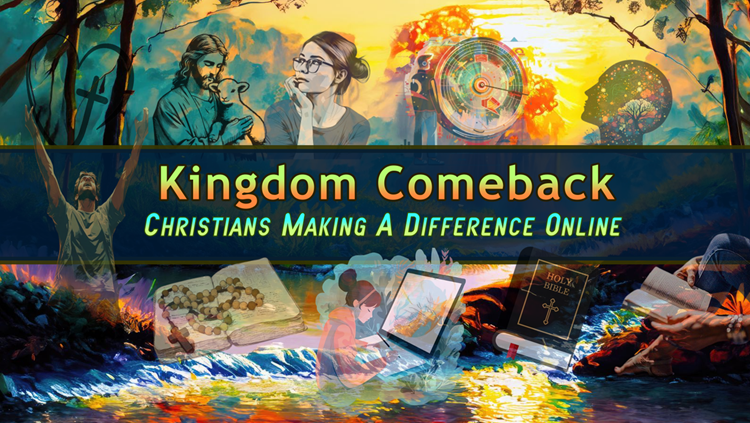
Faith is a cornerstone of the Christian experience, serving as both a personal anchor and a communal bond. It shapes beliefs, informs values, and guides actions. While faith can be abstract, its practical benefits are tangible and life-altering for many believers. This article explores the multifaceted benefits of faith for Christians, touching on spiritual, psychological, social, and practical dimensions.
Spiritual Benefits
1. Deepened Relationship with God
At its core, faith is about relationships—specifically, a relationship with God. Christians believe faith allows them to connect with God personally, fostering a sense of intimacy and understanding. This relationship is nurtured through prayer, worship, and reading scripture, all enhanced by a strong faith.

2. Assurance of Salvation
Faith provides Christians with the assurance of salvation. According to Christian doctrine, faith in Jesus Christ guarantees eternal life and reconciliation with God. This belief alleviates fears of judgment and helps believers live with hope and purpose, knowing their spiritual future is secure.
3. Guidance and Direction
Faith offers Christians a framework for decision-making and discernment. When faced with dilemmas, believers often turn to prayer and scripture, seeking divine guidance. This reliance on faith can lead to a clearer understanding of one’s purpose and direction in life, enabling Christians to align their actions with their values.
Psychological Benefits
1. Inner Peace
Faith can be a profound source of inner peace. Many Christians find comfort in their beliefs, particularly during stress or hardship. Trusting in God’s plan helps to alleviate anxiety, promoting a sense of calm amidst life’s storms. This peace is often described as a “peace that surpasses all understanding,” providing reassurance even in uncertain circumstances.
2. Resilience in Adversity
Faith equips Christians with resilience, allowing them to face life’s challenges with hope and strength. Believers often draw on their faith during difficult times, which can help them cope with loss, illness, or other personal struggles. This resilience is about enduring hardship and growing through it, fostering a sense of purpose even in pain.
3. Improved Mental Health
Numerous studies suggest that faith can have a positive impact on mental health. Regular participation in religious activities—such as worship services, prayer groups, and community service—can reduce feelings of loneliness and depression. The support of a faith community can be instrumental in fostering emotional well-being and providing a sense of belonging and acceptance.

Social Benefits
1. Sense of Community
Faith often brings individuals together, creating bonds within congregations and faith communities. These relationships provide emotional and social support, which can enhance overall well-being. The shared beliefs and practices create a sense of belonging, helping individuals feel connected to something greater than themselves.
2. Opportunities for Service
Many Christians are called to serve others, a principle deeply rooted in faith. This call to service can manifest in numerous ways, from volunteering at local shelters to participating in global missions. Engaging in service benefits those in need and enriches the volunteers’ lives, fostering a sense of purpose and fulfillment.
3. Moral and Ethical Framework
Faith provides a moral compass that guides behavior and decision-making. The teachings of Christianity offer clear ethical guidelines, helping believers navigate complex social issues. This framework encourages integrity, compassion, and justice, leading to positive interactions with others and contributing to societal well-being.
Practical Benefits
1. Coping Mechanisms
Faith equips Christians with coping mechanisms for life’s inevitable challenges. Practicing prayer, meditation, and scripture reading can provide comfort and clarity. These activities encourage believers to reflect on their circumstances, often leading to new insights and perspectives to facilitate problem-solving.
2. Life Satisfaction and Fulfillment
Studies indicate that individuals with strong religious faith often report higher levels of life satisfaction. The sense of purpose from faith—pursuing a calling, serving others, or engaging in community life—contributes significantly to overall happiness and fulfillment.

3. Health and Longevity
Research has shown that faith can positively impact physical health. Regular participation in religious activities is often associated with healthier lifestyles, lower rates of substance abuse, and even increased longevity. The social support provided by faith communities can also play a role in maintaining physical health, as members encourage one another to prioritize well-being.
The Transformative Power of Faith
Faith is not just a set of beliefs; it’s a transformative force that can radically change lives. Many Christians testify to faith’s profound impact on their character, relationships, and life trajectories.

1. Transformation of Identity
For many, faith leads to a transformation of identity. Believers often view themselves as children of God, which can profoundly influence their self-esteem and self-worth. This new identity can replace feelings of inadequacy or shame, promoting a healthier self-image and greater confidence.
2. Commitment to Personal Growth
Faith encourages personal growth and self-reflection. Christians are often motivated to grow in their understanding of God and themselves, leading to ongoing spiritual development. This commitment to growth can result in increased emotional intelligence, improved relationships, and a more profound understanding of life’s complexities.

3. Vision for a Better World
Faith inspires many Christians to advocate for justice, peace, and compassion. The teachings of Jesus call believers to love their neighbors, seek justice, and care for the marginalized. This vision often drives Christians to participate actively in societal change, working toward a more equitable and compassionate world.
Conclusion
The benefits of faith for Christians are far-reaching, impacting every aspect of life. From spiritual assurance and inner peace to social connections and practical support, faith is a guiding light in a complex world.

In an era marked by uncertainty and challenge, the transformative power of faith offers hope, resilience, and purpose. For Christians, faith is not merely a belief system; it is a way of life that enriches their existence and empowers them to make a difference in the world around them. As they continue to navigate life’s journey, the benefits of faith remain a vital source of strength, guiding them toward a brighter future filled with promise and potential.
CLAIM YOUR FREE BOOKS & COURSES!


